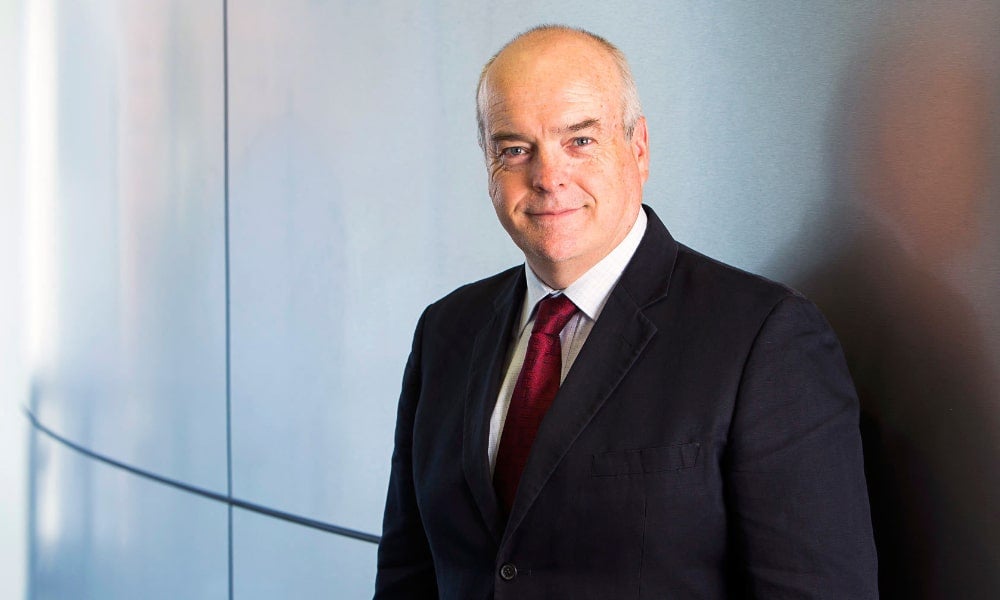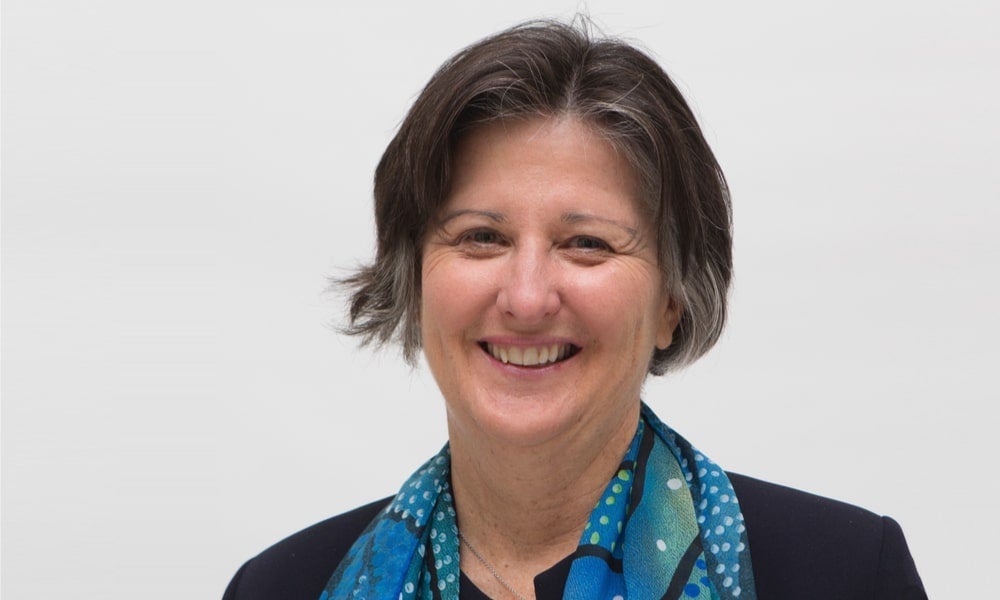Throwing a financial lifeline to struggling microbusinesses
Microbusinesses face a range of financial challenges, and help is often needed to manage pressing financial problems such as Australian Taxation Office (ATO) debts
It would be an understatement to say the past few years have been tough for small businesses. Many have been sent to the wall over this period, and a number of converging factors have had a knock-on effect for many small businesses.
A recent Council of Small Business Organisations Australia report found 43 per cent of small business owners are failing to make a profit while three-quarters take home less than the average wage. Furthermore, a recent report from CreditorWatch found that late payment rates for small businesses were averaging three times that of big business, while payment defaults increased at a rate of 20 per cent per month last year.
Of the 2.6 million businesses in Australia, the majority (98 per cent) are small and medium enterprises. Microbusinesses are the largest proportion of all Australian business, and they usually employ fewer than five people while 1.55 million (60 per cent) of businesses employ no staff. Microbusinesses, which often comprise family-owned businesses, sole traders and gig economy workers, are often at the pointy end of financial distress, according to Dr Ann Kayis-Kumar, Associate Professor in the School of Accounting, Auditing and Taxation at UNSW Business School.

A/Prof. Kayis-Kumar is the Founding Director of the UNSW Tax & Business Advisory Clinic, an international award-winning service that provides free tax and business advice, community education, and research-driven advocacy for those most in need. “Most of the people we help at the UNSW Tax and Business Advisory Clinic are running microbusinesses, and most self-report experiencing overwhelming levels of financial stress,” she said. “With an average tax debt of more than $82,000, it is not surprising that over a third of our microbusiness clients rate their financial distress levels as a 10 out of 10.”
Each year, more than 80,000 Australians are in serious financial hardship and need – but cannot access – independent accounting and tax advice. This breakthrough grassroots research by UNSW Tax & Business Advisory Clinic has also revealed 93 per cent need professional advice on long-term overdue tax and/or BAS returns, and 88 per cent need professional representation with tax debt discussions.
A/Prof. Kayis-Kumar said the clinic supports people in serious financial hardship (such as microbusiness owners) to navigate a system that is almost impossible to do so without representation. “This help is not simply tax advice, we help people in a crisis financially, often also living with severe mental health issues, survivors of domestic violence, and gambling, drug and alcohol addictions. By lifting the burden of tax and accounting compliance obligations, we can help with other personal issues, therefore, improving the mental health of these individuals. We hope the ripple effect is improving the wellbeing of their families and communities,” she said.
Since launching, the clinic has provided a remarkable 6500-plus hours and $3 million worth of free tax and accounting advisory services, which has played a vital role in assisting microbusiness owners to navigate the tax and transfer system, which they otherwise could not afford.
Learn more: UNSW Tax & Business Advisory Clinic
Who is in trouble and why?
Michael Walpole, Co-Founder of the clinic and Professor at the School of Accounting, Auditing and Taxation, UNSW Business School, said many thousands of small or microbusinesses are “crashing in and out of the system” every year.
One of the primary challenges faced by microbusinesses is the lack of knowledge and expertise in completing their tax returns and business of activity (BAS) statements. “Very often, microbusinesses will not have saved enough money to pay the tax,” said Prof. Walpole, who observed that microbusiness owners may find themselves teetering on the brink of bankruptcy without proper guidance or knowledge.
In fact, he observed many microbusinesses have an average of four years of un-lodged BAS and the average microbusiness helped by the clinic has racked up eight years of overdue tax returns. “I think our record is 30 years but that’s an outlier and non-lodged tax returns often come with penalties,” he said. “For the most part, people have not got themselves into this situation through bravado or recklessness. They’ve got into this situation through misunderstanding, and of course, they pay the most imminent bill which is not always the tax bill.”

The Small Business Debt Helpline is a specialist financial counselling service for small businesses nationally. It was originally established as the Small Business Bushfire Financial Counselling Support Line in 2020 with funding from the federal government, and now serves as a not-for-profit that helps small business owners and sole traders in financial difficulty.
“In relation to tax debts our clients fall into two groups: those who might be aware of their tax obligations but are unable to pay, and those who aren’t aware of their obligations. In many instances they have previously relied on an accountant but can no longer afford the accountant,” said Small Business Debt Helpline GM, Helen Davis, who observed there are many clients in the second group, whose biggest financial worries are usually related to reporting obligations, payment obligations and super and GST.
These microbusiness owners need financial statements/records, and then need to complete BAS statements. “Their challenge is not having the necessary skills personally and not being able to afford services to undertake those tasks,” said Ms Davis, who explained the Small Business Debt Helpline regularly refers clients in trouble to the UNSW Tax & Business Advisory Clinic for assistance with preparing records, lodging returns and payment arrangements.
This is particularly pressing for a number of microbusiness owners who have big debts that were previously “on hold” during covid. During that time their tax debt increased, and it is now a challenge to get an affordable payment plan with ATO given their relatively short repayment periods,” she said.
Read more: 3 keys to improving the mental health of SMEs in financial distress
More small business clients in need of financial counselling
Financial counsellors are trained professionals that work in not-for-profit community organisations and provide advice and support to people and small businesses experiencing financial stress. The peak body for the profession is Financial Counselling Australia (FCA).
FCA’s CEO Fiona Guthrie said financial counsellors were seeing more small business clients than in the past, which was a reflection of changes in the economy. “Many small business owners might be very good at delivering their particular product or service, but lack the business literacy to manage the books and records behind the scenes. Some business owners look at the top line of revenue and turnover, but forget that it is the bottom line that ultimately matters,” said Ms Guthrie.
“It has been a godsend to have services such as the UNSW Tax & Business Advisory Clinic as a referral option for financial counsellors with small business clients. The clinic can help clients with preparing records, lodging tax records and negotiating payment arrangements with the ATO.”

What kind of help microbusinesses need and when
Ms Davis said that there is a group of microbusiness owners who are unaware of their obligations and don’t have anything in place when they start their business. “And sitting behind that we sometimes see demographics where English is a second language. I can think of a client who had received a legal letter, and they were relying on their 10-year-old son to read it to them. So, the foundations of general literacy and business literacy are missing, as well as the foundations of basic business requirements,” Ms Davis explained that many clients are unable to understand the difference between turnover and profit, if revenue can cover expenses.
She also observed that the earlier a microbusiness owner can reach out for support, the more options they will have. However, many such owners are not aware that help is available and how it can assist. “Very often they’ve probably got an inkling something’s not right, but they’re so focused on feeling responsible for the business and potential employees, that they feel they need to solve the problem. So they try and battle through, until it gets to a ‘trigger event’ that really prompts them to reach out for help. Unfortunately, this event typically happens well down the track of their financial problems,” said Ms Davis.
There are a number of proactive steps microbusiness owners can take to address these challenges, ideally before they become a problem. Some need access to simple “need to do” information before commencing operations, and this might include, for example, setting money aside to pay superannuation and GST, which requires budgeting know-how.
An important element of this is working out the difference between profit (and how to price work), which is distinct from revenue. “And for a group that have had, or can have a bookkeeper or accountant, they need to know what to ask about the service they are paying for. For example, clients often report a disconnect between what they thought was being done and what was done,” said Ms Davis, who added that reaching out for help early when challenges arise would make a big difference in containing the impact of a problem and in giving microbusiness owners more options for resolution.

The link between financial distress and mental health
There is a strong and proven causal link between financial hardship and unmanageable debt levels, poor financial wellbeing, and poor mental health.
Microbusiness owners who are struggling financially experience significant levels of emotional stress. So, it should come as no surprise that 71 per cent of UNSW Tax & Business Advisory Clinic clients identified as having high levels of mental stress.
Fortunately, following assistance from the clinic, they report high client satisfaction (77 per cent rating 10/10), reduced financial distress (by 24 per cent), and reduced psychological stress (in 92 per cent of clients). “There is an immense impact on mental health,” said Professor Walpole, who explained that tax tends to be lower down in the hierarchy of immediate financial debts to pay after the likes of rent, credit card debts or car repayments, for example. “But unpaid tax debts will ultimately end up getting in between you and your social security benefits and other services and this has a huge effect on mental health,” he said.
Ms Davis also said there is a not inconsiderable group of clients who struggled with mental health issues, particularly where there are other factors at play such as domestic violence. “The majority of our callers are in a stressful circumstance, and that distress varies in degrees and how much impact it has on them,” she said.
“Some are still able to ‘self-advocate’ and work through their finances with some guidance and information, while others might need support and someone to advocate for them. A portion of clients have a diagnosed mental health illness, and are receiving medical treatment at the time of calling, and others are referred to mental health services.
“We refer significantly to the clinic, and the reason we’ll refer is because people who fall in those groups don’t have the inherent ability to do this work on their own. For example, once they can’t afford to pay a tax accountant anymore, it tends to all go into the too-hard basket. But if we are able to get someone to help them work through their tax, that is extremely valuable for them.”
Subscribe to BusinessThink for the latest research, analysis and insights from UNSW Business School
UNSW Tax & Business Advisory Clinic benefits for students
A/Prof. Kayis-Kumar also noted that it is a valuable and practical learning experience for students who enrol in the clinic as part of their Business degrees. All students contributing to the clinic since its inception in 2019 have reported that they ‘strongly agree’ that working on client issues improved their learning.
“Our students are immersed at the frontline from day one, including running client interviews and managing client files under supervision, and generously giving us a whole day of their time every week,” said A/Prof. Kayis-Kumar. “We cultivate respect and support for vulnerable people and communities by exposing our students to the experiences of people with complex and multiple disadvantage. So, it is very heartening to see our students empowered and inspired by their time at the clinic. Ultimately, this experience shapes the mindsets and skills of future business leaders.”
